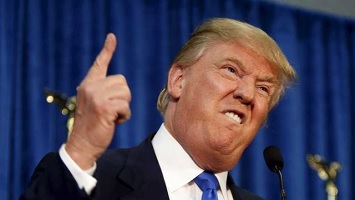Warning – I am going to get a little bit political here so try not get your panties in a bunch over these comments. I am trying to be objective and apolitical which is becoming an increasingly difficult thing to do these days. That said, I want to be clear that I don’t like Donald Trump personally. I think he’s actually a bad person. Still, I think some of his economic ideas are very interesting.
When I said that Donald Trump would likely win the Presidency back in 2016 I was mainly expressing my opinion that people in the USA tend to vote with their wallet. If the economy is doing well then people vote in the incumbent. If the economy is doing badly then they vote out the incumbent. And if the seat is vacant then they pick the person with the most relatable economic plan. I am oversimplifying, but I don’t think by much.
Anyhow, the reason I think Trump won is because Hillary’s economic plan was garbage – she was enamored with the idea of a budget surplus, raising taxes on many and never stopped to consider that running a budget surplus during times of weak economic growth might be a recipe for recession or that the tax hike rhetoric and being “fiscally responsible” just doesn’t resonate with people’s economic preferences. And while Trump’s economic plan was imperfect it actually made some sense and tended to resonate with people better. I am fairly certain he had no idea why it made sense, but it does. At least part of it does.
Trump’s economic plan can be boiled down to three big components:
- Open mouth policy – ie, going on Twitter and constantly trying to stir the animal spirits with talk about how the economy is the best that it has ever been.
- The king of debt – blow out the deficit and the national debt during a time of economic weakness with the hope that stimulus will bring us out of 2% growth and closer to 4% growth.
- Trade protectionism – slap tariffs on goods and services with the hope that manufacturers start making those products in the USA.
Now, I’ve been pretty vocal about number 3 – I am not a full blown proponent of free trade, but protectionism is silly. As Joan Robinson said, no one is better off when we dump rocks in our harbors. Still, what Trump is doing with these “trade wars” is pretty small potatoes in the grand scheme of things.
Number 2 is something I’ve advocated for a long time. With a weak economy the government is usually the entity that has the balance sheet flexibility to increase spending and debt issuance. I actually said that Obamacare was Obama’s biggest blunder – not because I don’t believe in government run healthcare, but because I think he should have implemented a MUCH bigger stimulus bill back in 2010. A deficit can be stimulative when the private sector is too weak to expand their own balance sheet (as has been the case for much of the last 10 years). Personally, I think Trump is doing this is an inefficient manner by lowering taxes disproportionately for the wealthy, but that’s a different matter. Still, Trump is basically on the right track here.
Number 1 is the really interesting theoretical component. We are seeing business and consumer optimism skyrocket. Why? We have no idea. But it sure seems to correlate highly with Trump talking up the economy at every opportunity he can. Is he stirring those animal spirits? I guess we don’t know yet for certain but it sure seems like it.
Trump is going against economic orthodoxy in many ways. We won’t be able to pin down exactly why it works or doesn’t work, but one thing we know is that he’s running the most interesting economic test perhaps ever. Economists will be dissecting the Trump economic experiment for a very long time and it will very likely change the way we implement policy forever.
Mr. Roche is the Founder and Chief Investment Officer of Discipline Funds.Discipline Funds is a low fee financial advisory firm with a focus on helping people be more disciplined with their finances.
He is also the author of Pragmatic Capitalism: What Every Investor Needs to Understand About Money and Finance, Understanding the Modern Monetary System and Understanding Modern Portfolio Construction.

